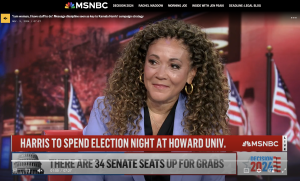Judith McConkie,
Salt Lake City, UT.
The sentence describes our family’s conflicted past. As liberal Democrats in the 1970s my husband and I considered the ban on blacks holding Mormon priesthood to be ridiculous and insidious — a reason to leave the faith. We held on and held out faith that things would change, slowly perhaps, but they would change. We are part of a prominent family in the church. We have alternately rejoiced (that hardly covers our euphoria) and then felt terrible shame. How could we properly show ourselves as sincere penitents without taking on a tone of supercilious idiots. Last summer our brother-in-law had his DNA mapped. The map showed markers common to Black Africans. In checking his genealogy he found a woman who had in one census had a name and connection to a black family in the south. The state’s birth certificate listed her as “mulatto” . After she joined the church in the late 19th century, her name has changed and her race is “white” The brother-in-law remembers his generous father describing her life and personality something like this: My grandmother was a kind and very loving woman whose life story is “shrouded in mystery.” For months now, we have sincerely envied his heritage; he and his children and we are actually thrilled. And we older members of the family know of the consequences of his father’s characterization of his grandmother’s past. I cannot adequately tell you how many times we have turned and examined this woman’s decision to literally alter her “race card” and her grandson’s decision to leave it alone, to let it be mysterious. We who found life partners in the Mormon church in the 1960s understand how his life would have been entirely different. Stunning really.






